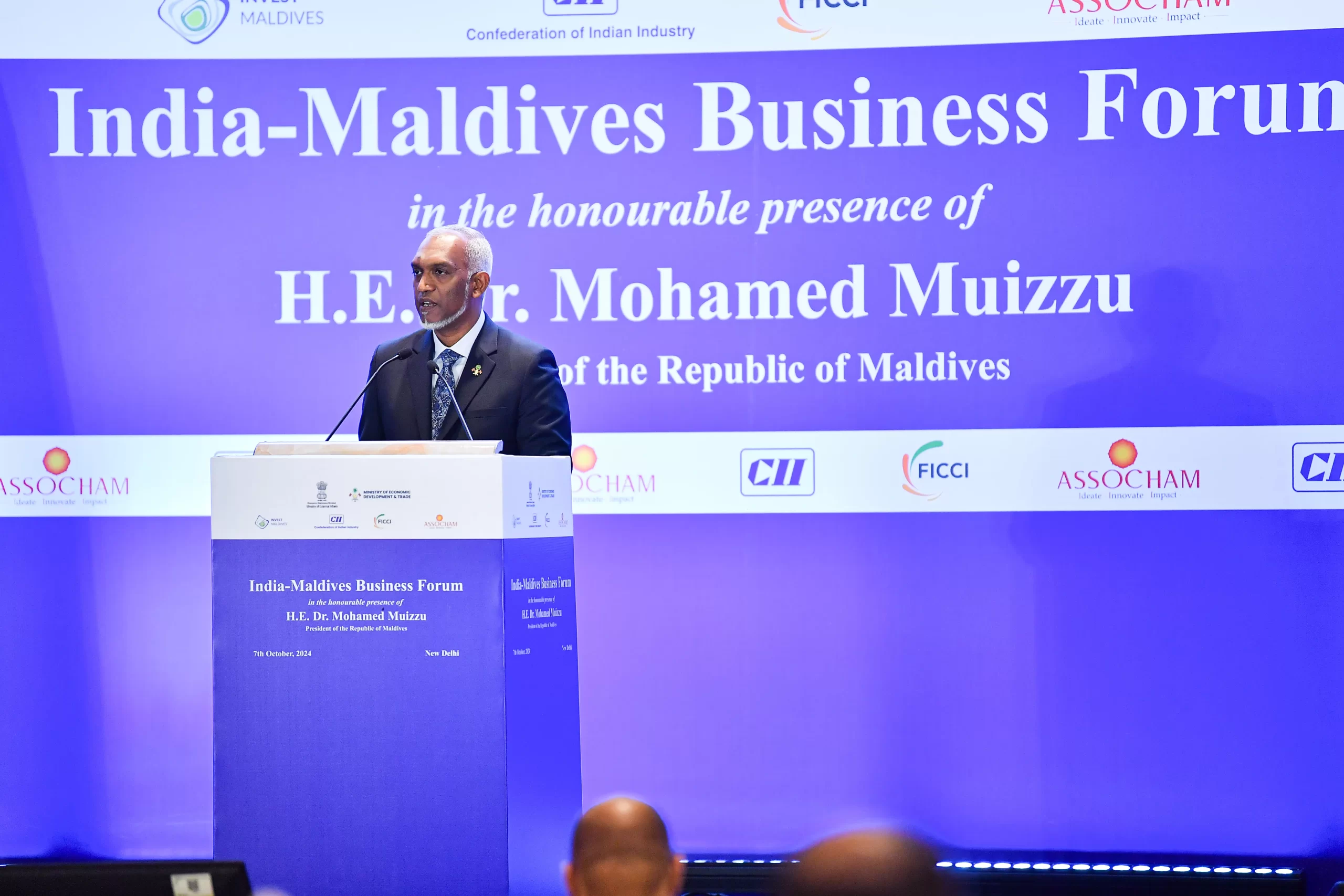MALÉ, Maldives – In a move to bolster financial connectivity and improve services for Indian tourists, the Bank of Maldives (BML) has announced a partnership with the National Payments Corporation of India (NPCI) to introduce the acceptance of RuPay cards across the Maldives. This was launched today during President Muizzu’s visit to India, with a renewed focus on strengthening economic ties between the two nations.
Under the new agreement, RuPay cards—India’s rapidly growing debit and credit card payment network—will be accepted at BML’s ATMs, point-of-sale (POS) machines, and various digital channels across the archipelago. Tim Sawyer, CEO and Managing Director of Bank of Maldives, called the partnership a pivotal step in embracing cashless payments: “It is our pleasure to work together with the National Payment Corporation of India to facilitate the introduction of RuPay cards in Maldives. This is a great initiative by the Indian government to move towards a more tech-savvy and cashless economy.”
The introduction of RuPay cards in the Maldives aligns with the growing number of Indian tourists who frequent the island nation. In 2019 alone, RuPay facilitated over 1 billion transactions, and its reach continues to expand, with hundreds of local and international banks utilizing the platform. Indian visitors will now experience a more seamless financial experience, reducing the need for currency exchange and allowing direct transactions with local vendors.
The announcement came on the same day that the President spoke at the India–Maldives Business Forum in New Delhi, underscoring the broader economic integration between the two countries. Addressing a distinguished audience Dr. Muizzu highlighted the enduring partnership between the two nations, noting that India has long supported the Maldives’ development in infrastructure, healthcare, and education.
“We deeply value our guests from India, and we are committed to enhancing our services to meet their preferences and expectations,” Dr. Muizzu said. He reiterated the Maldives’ intent to strengthen tourism offerings, citing the pivotal role Indian tourists play in the nation’s tourism sector, which remains the largest contributor to the country’s GDP.
In his address, President Muizzu also announced several ambitious initiatives aimed at broadening the Maldivian economy. Among them is the establishment of the Maldives International Financial Centre, slated for launch in 2025, and a new Development Bank of Maldives. Both projects, the President said, would deepen financial ties with India and other international partners, furthering the goal of creating a more resilient Maldivian economy.
“I stand here today extending a warm invitation to each of you to explore and engage with us in unlocking the immense potential of our economy,” he told the audience, which included representatives from India’s leading business associations and industries.
The introduction of RuPay cards, alongside these broader financial reforms, reflects a mutual commitment to deepening economic and technological cooperation between the Maldives and India. For both nations, these developments signal a shared vision of enhanced digital connectivity and financial inclusion, as the Maldives positions itself for future growth on the global stage.
As the Maldives takes steps toward modernization and diversification, the partnership with India—symbolized by the RuPay card launch—serves as a reminder of the intertwined futures of both countries. With the Maldives’ economy at a crucial crossroads, the support of a long-time ally like India will likely be instrumental in navigating the challenges and opportunities ahead.










